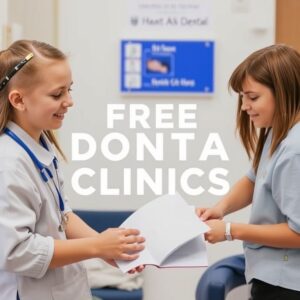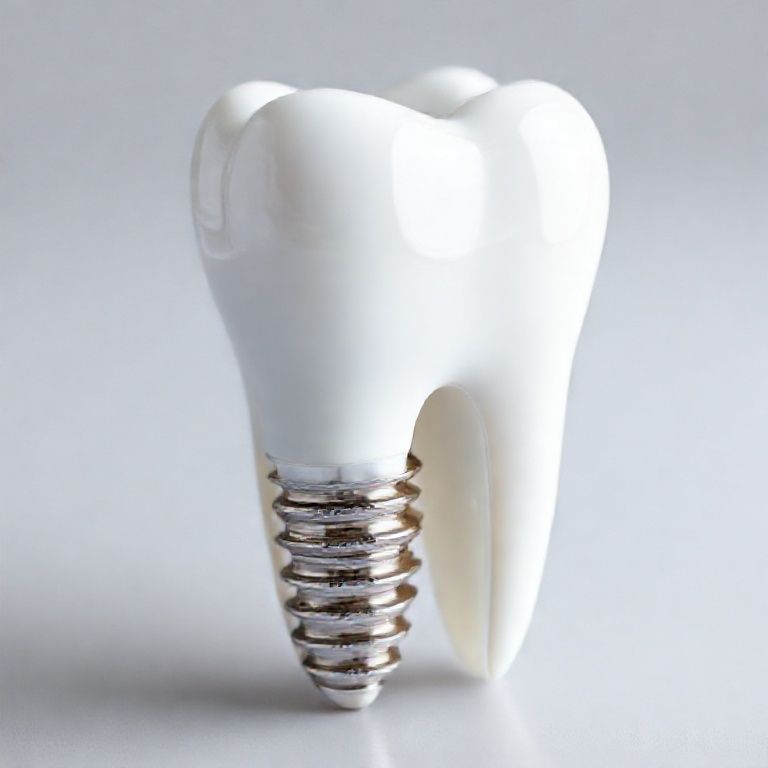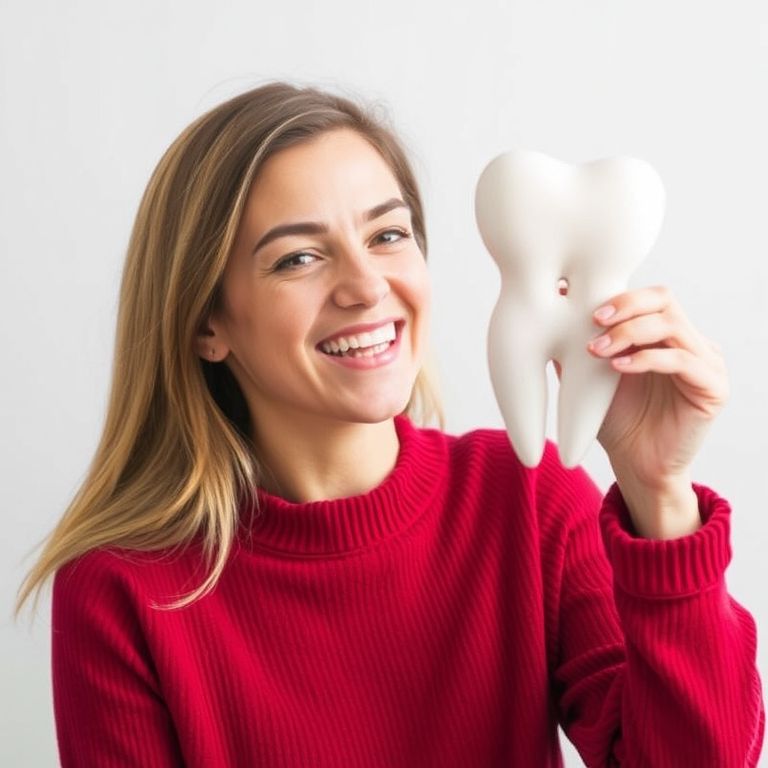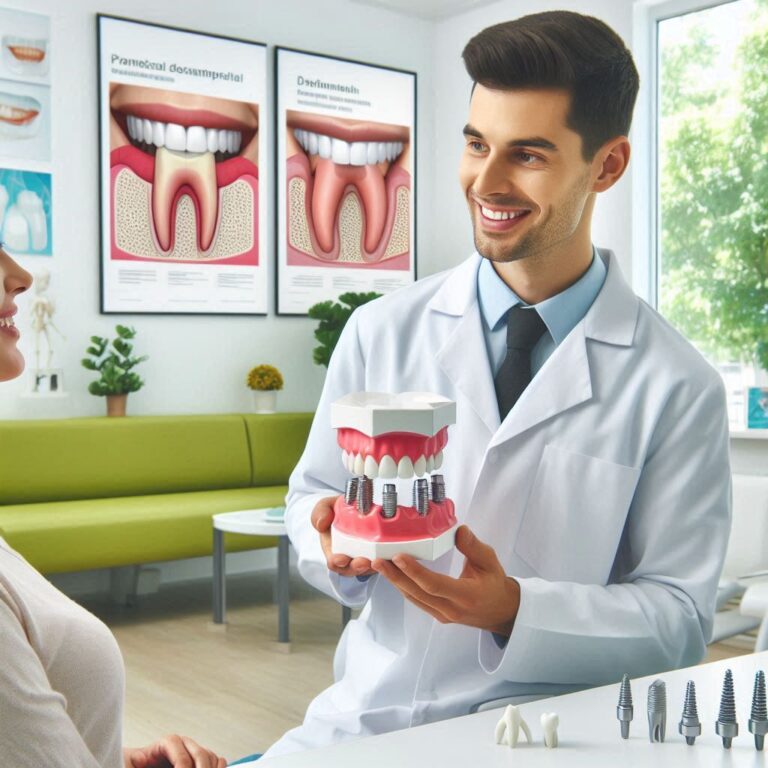Free Dental Clinics in Iowa
In the sprawling fields and tight-knit communities of Iowa, a silent epidemic often goes unnoticed by those who aren’t directly affected. It’s not a disease making headlines, but a fundamental lack of access to a basic component of health: dental care. For hundreds of thousands of Iowans—the working poor, the uninsured, the elderly on fixed incomes, and the children falling through the cracks—a simple toothache can spiral into a debilitating crisis. The choice between paying for a root canal and paying the electric bill is a grim, monthly calculation. The pain is not just physical; it carries the weight of embarrassment, social isolation, and diminished job prospects.
This article is a beacon of hope and a practical guide through that crisis. It is the most comprehensive resource available for Iowans seeking Free Dental Clinics in Iowa. We have meticulously researched and compiled information on the clinics, programs, and charities that form the fragile safety net for oral health across the state. Our mission is to demystify the process, empower you with knowledge, and connect you with the resources you need to reclaim not just your smile, but your confidence, health, and quality of life. Your journey to pain-free living starts here.

Understanding the Landscape: Why Dental Care is Elusive for Many Iowans
To effectively navigate the system, it’s crucial to understand the forces that make dental care inaccessible for so many.
The High Cost of a Healthy Smile
Dental procedures are expensive. A routine cleaning and exam can cost $100-$200. A simple filling can be $150-$400. More complex procedures like root canals ($700-$1,200) or crowns ($1,000-$1,500) can be financially catastrophic for those without insurance. Even for those with dental insurance, annual maximums (often $1,000-$1,500) are quickly exhausted, leaving patients to pay out-of-pocket for necessary follow-up care. This economic reality forces many to delay treatment until the pain becomes unbearable, turning a preventable issue into a complex and far more expensive emergency.
The Dental Deserts of Iowa: A Geographic Disparity
Iowa, like many rural states, is plagued by “dental deserts”—areas where there is a significant shortage of dental providers. Many dentists cluster in larger metropolitan areas like Des Moines, Cedar Rapids, and Iowa City, leaving vast rural counties with few, if any, options. For a resident of a remote county, accessing care might mean taking a full day off work and traveling hundreds of miles, incurring additional costs for gas, lodging, and meals. This geographic barrier is a primary reason why free and mobile clinics are so vital to the state’s public health infrastructure.
The Ripple Effect: How Oral Health Impacts Overall Well-being
The mouth is the gateway to the body, and oral health is inextricably linked to systemic health. Untreated gum disease (periodontitis) has been strongly associated with:
-
Cardiovascular Disease: Bacteria from inflamed gums can enter the bloodstream and travel to the heart, contributing to artery inflammation and clogging.
-
Diabetes: Periodontal disease can make blood sugar harder to control, and diabetes can make gum infections more severe.
-
Respiratory Infections: Inhaling bacteria from infected teeth and gums can lead to pneumonia, especially in older adults.
-
Poor Pregnancy Outcomes: Periodontal disease is linked to preterm birth and low birth weight.
Beyond the physical, poor oral health carries a profound social and psychological stigma. It can affect a person’s willingness to smile, speak, and socialize, leading to anxiety and depression. It can also be a barrier to employment, as a healthy appearance is often (unfairly) linked to perceptions of professionalism and capability.
Navigating the System: Types of Free and Low-Cost Dental Resources
The landscape of free dental care is not a monolith. It consists of several types of organizations, each with its own mission, funding, and service model.
Community Health Centers (FQHCs)
Federally Qualified Health Centers (FQHCs) are the backbone of the safety-net healthcare system in the United States. They are community-based organizations that provide comprehensive primary care, including dental services, to all patients, regardless of their ability to pay. They operate on a sliding fee scale based on income and family size. This means that if you are uninsured or underinsured, you will pay for services based on what you can afford. Iowa has a robust network of FQHCs with locations in nearly every region.
Non-Profit and Charitable Clinics
These are standalone clinics that operate primarily on donations, grants, and the work of volunteer dental professionals. Their services can range from comprehensive care to specific procedures like extractions and fillings. They often have strict eligibility requirements (e.g., proof of residency, income below a certain threshold, no dental insurance) and may only be open on specific days or for limited hours. Appointments can be difficult to secure due to high demand.
Mission of Mercy and Large-Scale Free Clinics
Events like the Iowa Mission of Mercy are monumental undertakings. For two days, hundreds of volunteer dentists, hygienists, and assistants transform a large venue (like a fairgrounds) into a massive dental clinic. Care is provided on a first-come, first-served basis, and services are entirely free. These events can treat thousands of patients, providing everything from cleanings to extractions and fillings. While they are a critical resource, they are one-time events, not a solution for ongoing care.
Dental School Clinics
The University of Iowa College of Dentistry is the state’s only dental school. Its clinics provide high-quality dental care at a significantly reduced cost. The care is provided by dental students who are closely supervised by licensed, experienced faculty dentists. While the appointments are longer than at a private practice, the cost savings are substantial, often 30-50% less. This is an excellent option for patients who need complex procedures and have the time to invest in the process.
Government Assistance Programs (Medicaid/Title XIX)
In Iowa, the Medicaid program (known as Title XIX) provides dental coverage for eligible low-income children, pregnant women, adults, seniors, and people with disabilities. For children, the coverage is comprehensive (Hawki program). For adults, the coverage is more limited and has been subject to legislative changes. It is crucial to check the current Iowa Medicaid dental coverage guidelines to understand what services are covered for your specific eligibility category.
A Comprehensive Directory of Free and Low-Cost Dental Clinics in Iowa
This directory is organized by region to help you find resources close to home. Please note: Details change frequently. Always call ahead.
Eastern Iowa Region
-
Community Health Centers:
-
Primary Health Care, Inc. (Des Moines & Marshalltown): While central, it serves a wide area. Offers medical, dental, and behavioral health on a sliding fee scale.
-
Peoples Community Health Clinic (Waterloo & Cedar Falls): A comprehensive FQHC with a full-service dental department.
-
-
Charitable Clinics:
-
The Free Medical Clinic (Iowa City): Provides free medical and dental care to uninsured, low-income adults. Dental services are limited to extractions and are by appointment only after an initial medical screening.
-
Safety Net Clinic (Dubuque): Offers free dental services, including exams, cleanings, fillings, and extractions, to qualifying low-income, uninsured residents.
-
Central Iowa Region
-
Community Health Centers:
-
Broadlawns Medical Center (Des Moines): A nationally recognized public hospital system with an extensive dental clinic offering a full range of services on a sliding scale.
-
Primary Health Care, Inc. (Des Moines): Multiple locations offering integrated care.
-
-
Charitable Clinics:
-
The Iowa Free Clinic (various locations): Holds periodic free dental clinics across central Iowa. Services and dates vary; check their website for the schedule.
-
Des Moines University Dental Clinic (Des Moines): While not free, it offers low-cost services to the public provided by dental residents and students.
-
Western Iowa Region
-
Community Health Centers:
-
UnityPoint Health – Family Medicine Clinics (Sioux City): Several locations offer dental services as part of their FQHC services.
-
Council Bluffs Community Health Center (Council Bluffs): Provides medical, behavioral, and dental care on a sliding fee scale.
-
-
Charitable Clinics:
-
Siouxland Community Health Center (Sioux City): An FQHC that is a cornerstone for dental care in the region, offering a sliding fee scale.
-
Promise Community Health Center (Sioux Center): Serves a large rural population with integrated health and dental services.
-
Northern Iowa Region
-
Community Health Centers:
-
Community Health Center of Fort Dodge: Provides comprehensive dental care to all ages.
-
Crescent Community Health Center (Dubuque): Offers a full range of dental services on a sliding scale.
-
-
Charitable Clinics:
-
Free Clinics of Iowa Network: Many smaller towns in northern Iowa are served by rotating free clinics. Checking the network’s website can help locate a clinic near you.
-
Southern Iowa Region
-
Community Health Centers:
-
Southern Iowa Mental Health Center (Various locations): Some locations have integrated primary and dental care services.
-
Jefferson County Health Center (Fairfield): Provides access to dental services for low-income families.
-
-
Charitable Clinics: This region has significant gaps. Residents often travel to central or eastern Iowa or rely on periodic Mission of Mercy events.
Comparison of Dental Resource Types in Iowa
| Resource Type | Cost Structure | Best For | Pros | Cons |
|---|---|---|---|---|
| FQHC / Community Health Center | Sliding Fee Scale | Ongoing, comprehensive care; families. | Widely available, integrated healthcare, preventive focus. | May have waitlists for new patients. |
| Non-Profit Charitable Clinic | Free or Donation-Based | One-time procedures; acute emergencies for the uninsured. | Truly free for those who qualify. | Highly limited hours/services; long waitlists; strict eligibility. |
| Mission of Mercy Event | Completely Free | Major, immediate care for anyone in pain. | No eligibility requirements, large volume of care provided. | One-time event, first-come-first-served, extremely long lines, no follow-up care. |
| Dental School Clinic | Reduced Fee (Low-Cost) | Complex procedures for patients with flexibility. | High-quality care at a fraction of the cost. | Very long appointments; treatment may take multiple visits. |
| Medicaid (Title XIX) | Free or Low Co-pay | Eligible low-income children, pregnant women, and adults. | Provides a regular dental home for ongoing care. | Adult coverage is often limited; not all dentists accept it. |
Beyond the Cleaning: Specialized Services and Programs
Care for Our Seniors
Seniors on Medicare face a harsh reality: traditional Medicare does not cover routine dental care. Programs like Donated Dental Services (DDS) through the Dental Lifeline Network match vulnerable seniors (as well as disabled and medically fragile individuals) with volunteer dentists who provide care free of charge. Local Area Agencies on Aging can also be a resource for finding low-cost options.
Ensuring a Healthy Start for Children
The Hawki program is Iowa’s state children’s health insurance program (SCHIP). It provides comprehensive dental coverage for children in low-income families. Additionally, school-based sealant programs are common, where dental hygienists visit schools to apply protective sealants to children’s molars, preventing cavities at a critical stage.
Emergency Dental Care: Where to Turn in a Crisis
For a severe toothache, abscess, or trauma, the emergency room is not the solution. ERs can only prescribe antibiotics for infection and painkillers for discomfort; they cannot perform dental procedures. Your best options are:
-
Call an FQHC and state you have a dental emergency.
-
Search for a “walk-in” or “emergency dental” clinic; some may offer payment plans.
-
Contact the United Way by dialing 2-1-1. This is a free, confidential service that can connect you to local health and human services, including emergency dental resources.
Denture and Prosthetic Assistance
Replacing missing teeth is often a low priority for free clinics focused on pain relief. However, some clinics and programs, like those at dental schools, may offer low-cost denture services. The University of Iowa College of Dentistry’s prosthodontics department is a primary resource for this type of complex care at a reduced cost.
Preparing for Your Visit: A Step-by-Step Guide
Being prepared can make the process smoother and less stressful.
-
Gather Documentation: You will likely need:
-
Photo ID (Driver’s License, State ID)
-
Proof of Income (pay stubs from the last 30 days, tax return, Social Security award letter, unemployment statement)
-
Proof of Residence (utility bill, lease agreement)
-
Proof of Insurance (if you have any, including medical)
-
List of Current Medications
-
-
The Patient Journey:
-
Screening: You’ll meet with a caseworker to verify your eligibility and financial situation.
-
Exam: A dentist will perform a limited or comprehensive exam to assess your needs.
-
Treatment Planning: Due to high demand, clinics often must prioritize care. Life-threatening infections and pain relief (extractions) will come before cleanings or fillings. You may not receive all the care you need in one visit.
-
Scheduling: You will be scheduled for future appointments for the approved procedures.
-
-
Questions You Should Ask:
-
What services are covered today?
-
What is the process for follow-up care?
-
If you can’t help me, who can you refer me to?
-
Do you provide prescription medications, or will I need to fill them at a pharmacy?
-
Bridging the Gap: Policy, Advocacy, and the Future of Dental Care in Iowa
The current system, while heroic, is not a sustainable solution. It relies heavily on the generosity of volunteers and is overwhelmed by demand. Long-term solutions require policy changes, such as:
-
Expanding Adult Medicaid Dental Benefits: Providing comprehensive dental coverage for adults on Medicaid would dramatically reduce the burden on emergency rooms and charitable clinics.
-
Supporting Teledentistry: Especially in rural areas, teledentistry can allow hygienists in remote schools or clinics to be supervised by dentists in urban centers, expanding access to preventive care.
-
Increasing Loan Forgiveness for Dentists: Incentivizing dentists to practice in rural Iowa through state loan repayment programs can help eliminate dental deserts.
-
Public Health Education: Community-based programs that emphasize the importance of preventive care and nutrition can reduce the incidence of dental disease over time.
Conclusion: Your Health is Worth the Effort
Navigating the world of free dental care requires patience, persistence, and the right information. The barriers are real, but so are the resources dedicated to helping you overcome them. From the sliding-scale services of Community Health Centers to the compassionate care of volunteer-driven clinics, a path to better oral health exists. Do not let financial hardship or geographic isolation prevent you from seeking the care you need and deserve. Your smile, your health, and your well-being are worth the effort.
Frequently Asked Questions (FAQs)
Q1: I have a dental emergency right now (severe pain, swelling). What should I do?
A: Do not go to the emergency room for dental procedures. Immediately call your local Community Health Center (FQHC) and explain it’s an emergency. If you cannot get through, call United Way’s 2-1-1 for guidance. If you have a facial swelling that is making it hard to breathe or swallow, go to the ER immediately, as this can be life-threatening.
Q2: I don’t have any income or identification. Can I still get help?
A: Yes, many clinics will still see you. You will need to speak with a caseworker about your situation. They may ask for a letter from a shelter or a statement from someone who can verify your circumstances. The key is to be honest and communicate with the clinic staff.
Q3: Why do free clinics only pull teeth and not do crowns or root canals?
A: Charitable clinics operate with limited resources, time, and volunteer staff. Their primary mission is to relieve pain and treat infection. Extractions are a fast, definitive solution to both. Complex restorative procedures like root canals and crowns require multiple, lengthy appointments and expensive materials, which makes it difficult for these clinics to provide them on a large scale.
Q4: Are the services at a dental school safe?
A: Absolutely. Dental schools are teaching institutions, and every step of a procedure is checked and supervised by experienced, licensed faculty dentists. The quality of care is very high; the trade-off is the time it takes to complete treatment.
Q5: How can I volunteer or donate to support these clinics?
A: Clinics are always in need of financial donations, as well as supplies. If you are a licensed dental professional (dentist, hygienist, assistant), your volunteer time is incredibly valuable. Contact any clinic directly to inquire about their volunteer and donation needs.
Date: October 19, 2025
Author: The Public Health Research Group
Disclaimer: The information in this article is for informational purposes only and is subject to change. We strongly recommend contacting the clinics directly to confirm hours, services, eligibility, and availability before visiting. This is not a substitute for professional medical advice.


